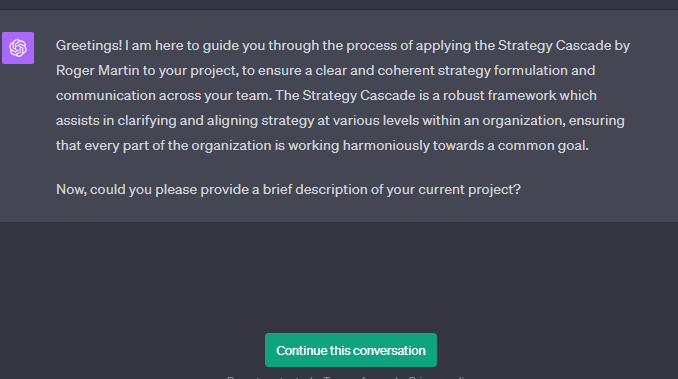Pre-mortem prompt, 100 things I know, and driving change - TGT#11
3 useful things for productivity and growth in 3 minutes or less
Hi friends - here are the three most useful ideas, resources, and tools I found this week:
Tool: A powerful LLM prompt for leaders
Resource: 100 tiny tidbits
Idea: How to motivate people for free

1. Project Pre-Mortem Prompt
LLMs could make leaders and managers 10x more effective. Here’s a great example:
This Project Pre-Mortem Prompt from Ethan Mollick it turns ChatGPT into a coach that walks you through an evidence-based method for identifying potential project issues and improving your chances of success. I think tools like these are the future of leadership and management, particularly in large organisations.
I’ve created a prompt that walks you through Roger Martin’s Strategy Cascade. You can imagine plenty more (e.g. OKRs, WBS method, etc).
Takeaway: Management Chatbots will likely have a huge role in the future of motivation and goal setting at work.
2. 100 pieces of advice
I love reading other people’s collected wisdom - it feels like life’s only real shortcut. I’ve been building my own list of short life lessons and rules, and really loved this list of ‘100 Things I Know’ by artist Mari Andrew. Three highlights:
5. I know the mechanics of an argument, and I’ve learned that everything is about feeling. We have 9x more information going from body to brain, than brain to body...To resolve an argument, begin by saying “I can see why you…” which is a way to make the conversation about feeling rather than facts.
32. I know the key to happiness: It’s not self-care, it’s caring for your community.
64. I know that everyone wants to be witnessed. If you don’t know what to say to your friend, and you’re in their presence, just sit next to them. Put a hand on their back if it feels right.
Takeaway: We all have hugely valuable accumulated wisdom. What would be on your list of 100 lessons learned?
3. How to motivate people for free
Here’s a strange story about motivating people:
A few years ago, an organisation approached lawyers and asked if they would offer less expensive services to needy retirees, at a rate like $30 an hour. The lawyers said no.
Then, a program manager from the organisation had a brilliant idea: he asked lawyers if they would provide free services to the needy retirees. Overwhelmingly, the lawyers said yes.
This experiment, described by Dan Ariely in his book “Predictably Irrational” shows that sometimes, money kills motivation. In this case, asking lawyers for free leveraged invoked powerful social norms (being helpful, being generous), while market norms told them the $30 per hour rate was below their worth.
Takeaway: Know when to frame a request in terms of social norms vs market norms to get buy-in for change.
Until next week and with love,
Sam



